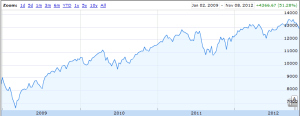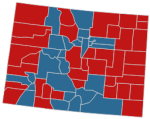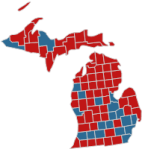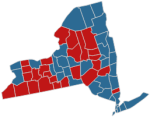As I age, I continue to realize how little I understand things. The events of September 10, 2025, and the commentary in their aftermath are reminding me how much I do not understand about people and their experiences.
On the 10th, two terrible shootings took place. One involved the murder of a right-wing activist, Charlie Kirk. The other was a shooting at Evergreen High School in Colorado, the state which has been a tinder box for school shootings ever since the Columbine tragedy in 1999. The Evergreen shooter severely injured two classmates and then killed himself.
Before his death, I had not heard of Charlie Kirk, and I even consider myself fairly well engaged in politics. Apparently he was a vociferous supporter of guns and of his understanding of Christianity. In the days since his murder I have seen friends and acquaintances referring to Kirk as either a near saint or as the other extreme, like a second coming of Joseph Goebbels. I don’t know for sure. I have a hunch he was somewhere in between, more gray, as most people and situations tend to be. The level of sanctification of Kirk and the righteous indignation at his murder are stunning.
The same people glorifying Kirk are nearly silent about the school shooting. These are people who are often kind and welcoming in personal situations. Some of them have been in my home, were at my wedding, and have even held my children. Yet in some important ways we are light-years apart. How could such sometimes genuinely loving people also support retribution and violence? These people seem to be championing Kirk for the ideas he espoused about guns and religion. Somehow Kirk’s brand of Christianity requires guns and accepts violence. You won’t find support for guns and violence in the Gospels.

I hardly know anything about the school shooting victims, and I’ve only seen a little about the shooter. Nonetheless, he seems to have similar, though more extreme, views as Kirk. Hence Kirk’s supporters have made little mention of the school shooting. But I’ve now drifted far into the unknown. Those last two sentences were pure speculation. I could easily convince myself that those thoughts are true, but I don’t really know. What do I really know? What do any of us really know?
Very little.

I can try to empathize with other people. I can try to understand. But I don’t ever really know someone else’s experience. As soon as I pick up the virtual bullhorn for someone else’s cause, I’m turning my desire to understand into self-righteousness. I’m taking their needs and shining the light on myself. That doesn’t mean I should do nothing, but I struggle to find the right approach. In the meantime, I can try to empathize, I can recognize I don’t know everything, and I can pray. At least for me, prayer to my conception of God brings some relief, even if not answers, to the seeming madness around us.
There have been more high-profile shootings in recent years than I can count or even list: Columbine; Sandy Hook; the school in Florida; the theatre shooting in Aurora, Colorado; a Columbine copycat in Colorado who committed suicide before killing others; the Congressional baseball game; that guy on the streets of Minneapolis during the George Floyd riots; the Las Vegas concert massacre; the Boulder, Colorado grocery store; the Colorado Springs, Colorado nightclub; Trump being shot at and targeted again after that; the United Healthcare executive being gunned down on the street; the politicians in Minneapolis; the person who fired at the CDC building; and more I can’t quite recall. Those are just the high-profile shootings. There are thousands, tens of thousands of murders and suicides every year as well. So unfortunate.
To me, a fascinating aspect of many of these high-profile shootings is that most of the shooters are middle-class white males. We white men have so poisoned ourselves with greed, lust, arrogance, self-pity, and fear that we are the biggest cause of the problems that people like Kirk rail against. We can’t take any rejection. We can’t take any hardship. We’ll take no responsibility. It must be “them.” “They” are holding us back, meaning immigrants, darker-skinned people, women, whoever—anyone who looks or acts differently. It’s all deflection and denial. Some people pick up social media or microphones. Some people pick up guns. Both directions seem to be leading to violence.
And now people are having the same mind-numbing arguments about having guns or not having guns (they’re not debates because no one is considering real merit behind their points). Isn’t it obvious? More access to guns makes killing more likely. But what do I know?
Mental health problems are a factor. Bad or absent parenting are factors. Depression, bullying, and isolation are all factors. Without guns those problems would not turn into mass violence. Sure, there are other weapons. Sure, there are bombs and cars used as weapons. But it’s totally possible to reduce or nearly eliminate one of the biggest contributors to killing: guns. Gums don’t kill people; bad people kill people. Sure. But people without guns don’t shoot people. Seems simple.
I don’t understand how people can preach Christian messages and simultaneously call for access to guns. I assume it’s a result of fear. But I don’t know for sure. Jesus taught forgiveness and peace. He had his disciples stand down when the Roman guards came to take Him away. Guns are used for hunting and protection. Those are codenames for killing.
What’s the answer? I don’t know for sure. Forgiveness is probably a big part of it. For people who didn’t support Kirk–forgiveness. For people who supported Kirk and want retribution against the shooter–forgiveness. For the community in Evergreen–forgiveness. That’s all easier said than done. What would I do if I were in their shoes? I don’t know.
Maybe starting with, “I don’t understand,” is a good place. That might slow me down from jumping to a more harmful response.



 Posted by Scott Primeau
Posted by Scott Primeau 





